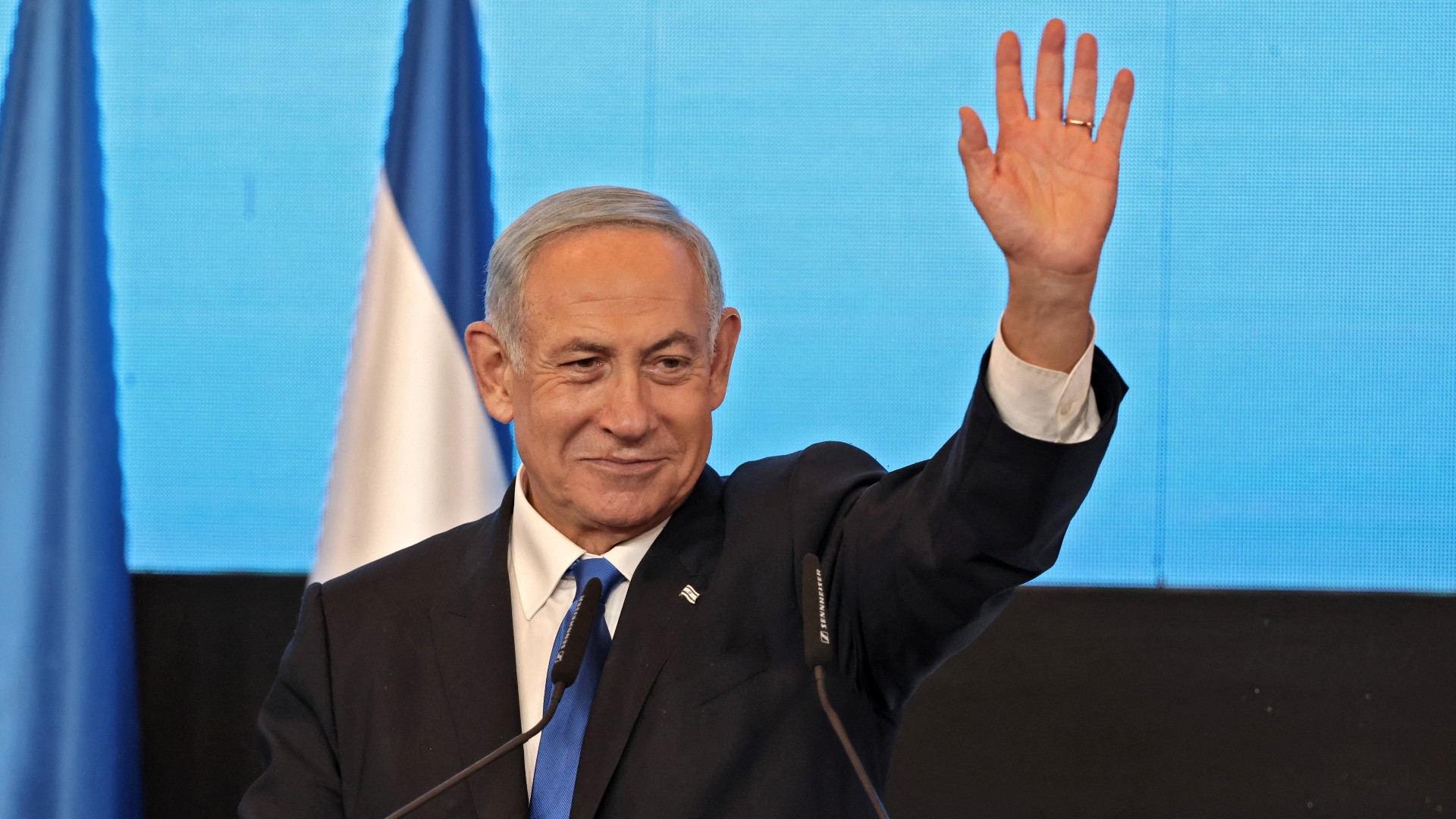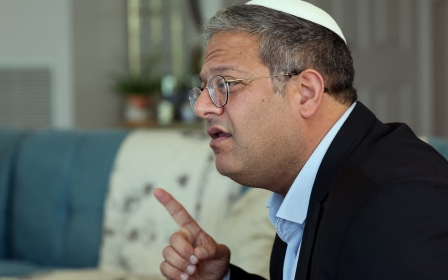Netanyahu forms new Israeli government with far-right partners

Benjamin Netanyahu announced that he has formed a new Israeli government, returning to power as prime minister in Israel’s most right wing administration in history.
“I got it,” the incoming premier tweeted on Wednesday night, minutes before a midnight deadline set by President Isaac Herzog to form a new government following elections on 1 November.
“Thanks to the enormous public support we received in the last elections, I was able to establish a government that will work for the benefit of all Israeli citizens,” he added, accompanied by a video of him calling the president.
Herzog’s office confirmed that Netanyahu’s statement had been received.
Israel’s longest serving prime minister, who led the government from 1996 to 1999 and again between 2009 and 2021, returns to power after his Likud party, far-right religious Zionist factions and ultra-Orthodox parties secured 64 of parliament’s 120 seats.
New MEE newsletter: Jerusalem Dispatch
Sign up to get the latest insights and analysis on Israel-Palestine, alongside Turkey Unpacked and other MEE newsletters
Bezalel Smotrich, leader of the Religious Zionism political alliance, and Itmar Ben Gvir, leader of Israel’s Jewish Power party, will take up prominent positions in the incoming government.
Smotrich, a self-declared homophobe and settler activist, has been named finance minister and will also be placed within Israel’s defence ministry, with oversight of settlements inside the illegally occupied West Bank.
The post gives Smotrich authority over building permits in settlements, demolitions of Palestinian homes, and land issues. He will also oversee two military units in charge of running civilian and security affairs in the occupied West Bank.
Ben Gvir, who was previously convicted in Israel of incitement to racism and supporting a terrorist organisation, will be named national security minister, with oversight of police and the force that controls security at al-Aqsa Mosque.
Meanwhile, Avi Maoz, head of the anti-LGBT Noam party, was appointed deputy minister in charge of “Jewish identity”, with control over parts of Israel’s national education system.
Maoz supports gay conversion therapy, objects to allowing women to serve in the military and calls for the chief rabbinate to serve as the “fourth branch of government”.
Aryeh Deri, leader of the Shas ultra-Orthodox party, has also been promised the interior and health portfolios - despite Israel’s attorney general stating Deri cannot serve in cabinet due to past convictions for tax offences.
Among the reforms planned by the incoming government is giving parliamentarians the right to overrule Supreme Court decisions, as well legal reforms that could end Netanyahu’s ongoing trial on charges of corruption - which he denies.
It was not made immediately clear when the new government would be sworn in, though Netanyahu told Herzog he intended to do it “as soon as possible”.
This article is available in French on Middle East Eye French edition.
Middle East Eye delivers independent and unrivalled coverage and analysis of the Middle East, North Africa and beyond. To learn more about republishing this content and the associated fees, please fill out this form. More about MEE can be found here.




